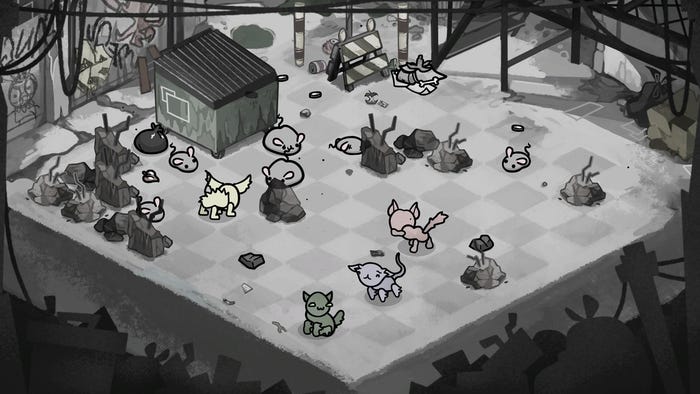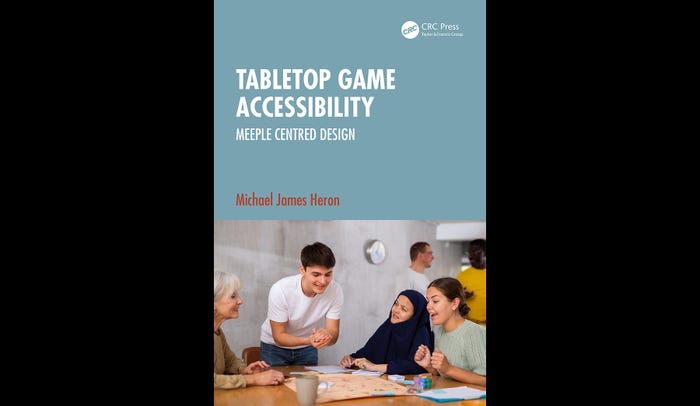This Week In Video Game Criticism: All You Need Is Love
We're partnering with game criticism site Critical Distance to present a week in discussion from commentators all over the world, this time on procedural MMO Love, A Boy And His Blob and the infamous

[We're partnering with game criticism site Critical Distance to present some of the week's most inspiring writing about the art and design of video games from commentators worldwide. This week, Ben Abraham checks out discussions on procedural MMO Love, A Boy And His Blob, Modern Warfare 3 (?), and much more.] In the week to November 15th, Cary from the Play Like a Girl blog wrote about female avatar design and asserted that better design could have pay-offs for the number of women interested in video games: "…if more developers followed in Valve’s footsteps and made “normal” female avatars it would do wonders for getting women interested in gaming but in order to do that the industry would have to let go of a pretty deep-seeded sense of normalcy: that women are only exciting and enticing when they’re practically nude. Mike Schiller wrote about Band Hero’s ridiculous disbursement of achievements, and it’s giving away of over half its gamerscore just for finding ‘secret notes’. Achievement points ahoy! Elsewhere, Quintin Smith wrote on his blog about ‘Games Journalism: What Not To Say”. His five points are all good, practical things, and I can see their inherent usefulness for anyone considering or currently writing about video games. Smith also picked apart the differences between two indie MMO games – Eskil Steenberg’s (pictured) Love and something called Neverdaunt. Yeah, I’d never heard of it either, but Quintin quite liked it. My friend Eric Swain linked me to this – a piece on Gamasutra about ‘Why major publishers need an indie arm’. Good to see the indie revolution coming from all sides. The Onion picked apart Modern Warfare 3 (THREE) and its realistic depiction of army life. I’ll just say that it’s really lifelike. In another piece, Tristan Kalogeropoulos argues that spoiler warnings are inhibiting video game discussion, and I can certainly see his point: "It’s amazing what content revelations gamers will get their proverbial knickers in a twist over… perhaps it is because most games are more akin to fairground haunted house rides, filled to the brim with jumps and tons of tacky fun, but little in the way of substantive story. Revealing elements of gameplay lays out on the table the only things that these games have going for them. Daft novelties. Elliot Maximillian Pinkus writes for the MIT Gambit Lab, in a piece called the ‘Confessions of an Impatient Cheater’, noting that: "Braid requires 100% mastery just to progress to the ending. If the player wants to see the mind-blowing twist at the end, they are supposed to just tough it out….But what if the player isn't as affected by fiero, if it isn't their personal "ultimate Game Emotion"? What if their biggest emotional reward is curiosity or relaxation or excitement? Well then, we would cheat, naturally. Or stop playing the game, which is what I did. Dan Bruno comes in from the cold after a long absence to write about the Wii remake of A Boy and his Blob. Also, Michael Abbott of The Brainy Gamer released a podcast this week featuring Brenda Brathwaite and John Sharp. I haven’t had a chance to listen to it yet, but I hear good things from people who have. In another article, Anthony Burch, author of Destructoid’s ‘Rev Rant’ goes on about Modern Warfare 2 and narrative, gameplay conflict. This was the first thing I saw of the ‘No Russian’ level this week, but it was by no means the last. In this spoiler-filled video (oh the irony! I’m using a spoiler tag after linking to the above article about how spoiler warnings are impeding criticism!) I think Burch is reaching for the excellent term ‘Ludonarrative Dissonance’. Trent Polack elaborates on the his own response and feelings towards the ‘No Russian’ level, examining it within the wider context of the game’s plot and it failed to achieve the desired response from him: "For “No Russian” to work, I have to buy into the premise fully. I have to know that what I’m doing is vile but necessary. I have to have Vic Mackey’s conviction that what I’m doing is the right thing to do, as hard as it is. Being only the fourth mission in Modern Warfare 2, though, “No Russian” does not have the luxury of my trust or belief in its world." Matthew Kaplan had a vastly different take on the level, arguing that it ‘succeeded beautifully’. Meanwhile, Charlie Brooker writing for The UK’s Guardian newspaper asserts that, “Call of Duty: Modern Warfare 2 is the Citizen Kane of repeatedly shooting people in the face.” Those memes – they sure do get around. Decidedly in the negative camp when it comes to reactions to the “No Russian” level is Tom Chick, and his lengthy and thoughtful response is best served by directly quoting from the source: "When the previous Calls of Duty presented disturbing scenes -- bringing down a building full of German soldiers, taking out insurgents from the cool quiet of an AC-130 gunship, presenting the point of view of an executed politician, nuking an entire city -- they earned it. They were even, dare I say?, subtle. But this is just flat-out mercenary shock value, trawling for comments from guys like me on blogs and the sort of publicity that partly made Grand Theft Auto what it is today." And last for This Week In Game Criticism, Krystian Majewski has finished his epic (yes, epic) trilogy listing all of the interface design flaws of Mass Effect (which, coincidentally I’m replaying on PC at the moment). Just about everything Majewski says I find myself nodding along with and going “Yeah, it would have been awesome if…”, which is a sure sign that he’s on to something. The tagline for the first post in his series is “In a world of bad design choices and poor execution, there was one game that ruled them all…” It's quite telling. It’s also my pick for must read of the week, and you can start at the beginning of the trilogy, if you'd like.
Read more about:
2009About the Author(s)
You May Also Like









.png?width=300&auto=webp&quality=80&disable=upscale)



